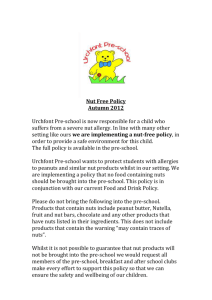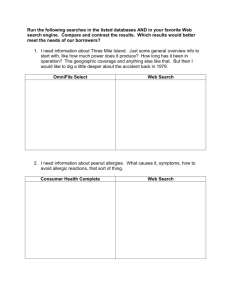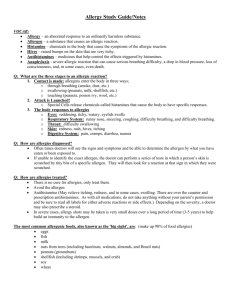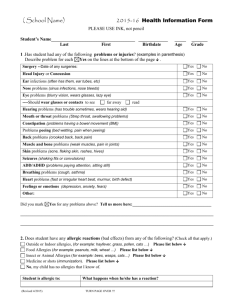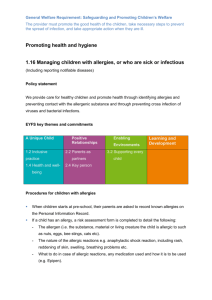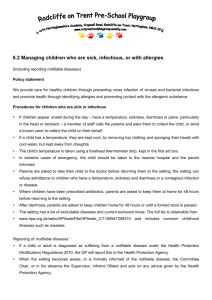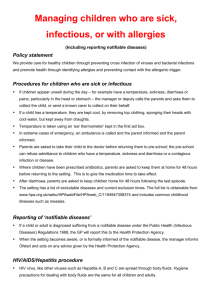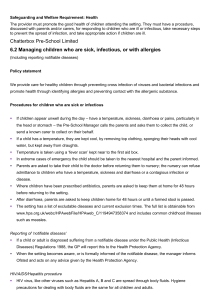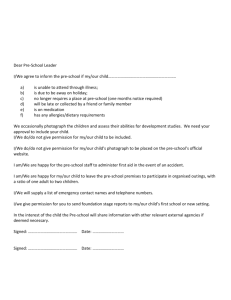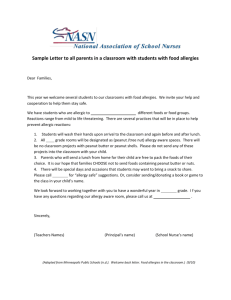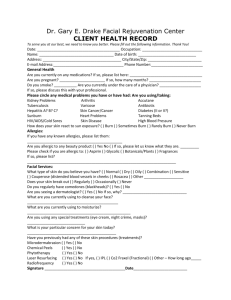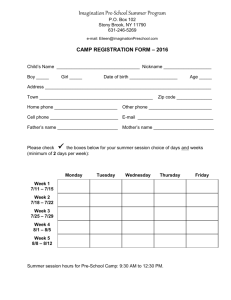Policy – Managing children with allergies - Cygnet Pre
advertisement
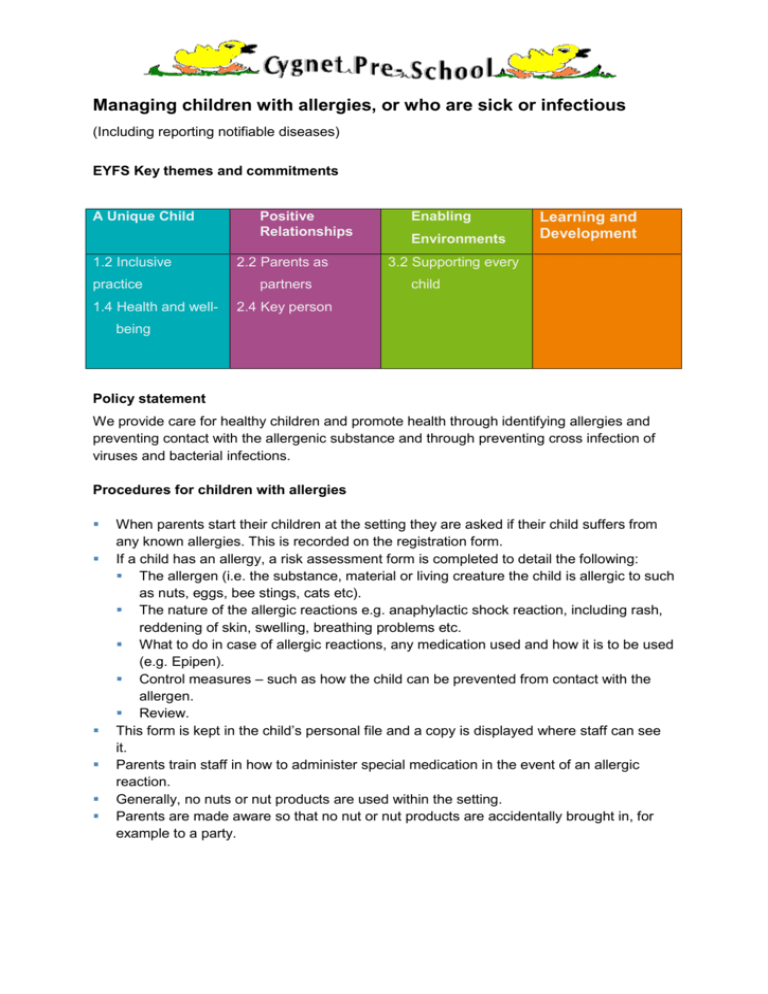
Managing children with allergies, or who are sick or infectious (Including reporting notifiable diseases) EYFS Key themes and commitments A Unique Child 1.2 Inclusive practice 1.4 Health and well- Positive Relationships 2.2 Parents as partners Enabling Environments Learning and Development 3.2 Supporting every child 2.4 Key person being Policy statement We provide care for healthy children and promote health through identifying allergies and preventing contact with the allergenic substance and through preventing cross infection of viruses and bacterial infections. Procedures for children with allergies When parents start their children at the setting they are asked if their child suffers from any known allergies. This is recorded on the registration form. If a child has an allergy, a risk assessment form is completed to detail the following: The allergen (i.e. the substance, material or living creature the child is allergic to such as nuts, eggs, bee stings, cats etc). The nature of the allergic reactions e.g. anaphylactic shock reaction, including rash, reddening of skin, swelling, breathing problems etc. What to do in case of allergic reactions, any medication used and how it is to be used (e.g. Epipen). Control measures – such as how the child can be prevented from contact with the allergen. Review. This form is kept in the child’s personal file and a copy is displayed where staff can see it. Parents train staff in how to administer special medication in the event of an allergic reaction. Generally, no nuts or nut products are used within the setting. Parents are made aware so that no nut or nut products are accidentally brought in, for example to a party. Procedures for children who are sick or infectious If children appear unwell during the day, for example have a temperature, sickness, diarrhoea or pains, particularly in the head or stomach, the supervisor calls the parents and asks them to collect the child, or send a known carer to collect on their behalf. If a child has a temperature, they are kept cool, by removing top clothing, sponging their heads with cool water, but kept away from draughts. In extreme cases of emergency the child should be taken to the nearest hospital and the parent informed. The pre-school can refuse admittance to children who have a temperature, sickness and diarrhoea or a contagious infection or disease. Where a child has suspected conjunctivitis, parents are contacted and asked to collect their child and treat the infection to prevent it from spreading. Where children have been prescribed antibiotics, parents are asked to keep them at home for 48 hours before returning to the setting. After diarrhoea, parents are asked to keep children home for 48 hours or until a formed stool is passed. The pre-school has a list of excludable diseases and current exclusion times. This policy was adopted at a meeting of Cygnet Pre-school Held on Signed on behalf of the pre-school Chairperson
